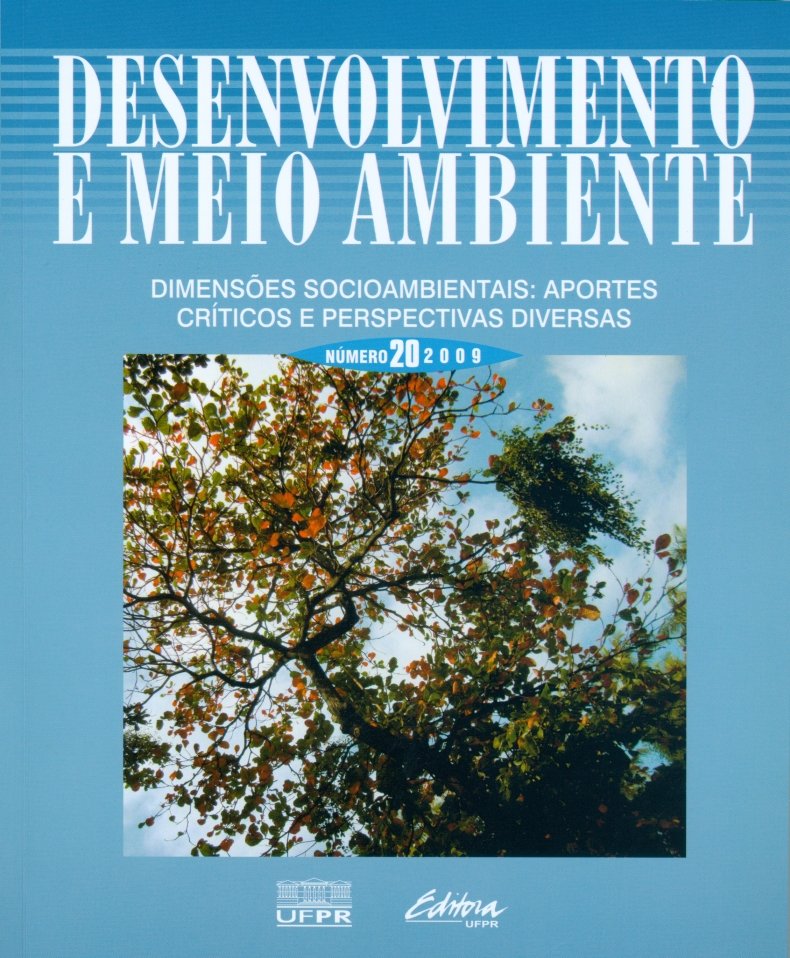Ecological modernization in Brazil: limits and perspectives
DOI:
https://doi.org/10.5380/dma.v20i0.12387Keywords:
modernization, environmental policy, green consumption, innovation, modernização ecológica, política ambiental, consumo verde, inovaçãoAbstract
The concept of Ecological Modernisation aims to overcome environmental problems based on four main assumptions: technological innovation, prevention, public participation in decision making, and simultaneous environmental and economic solutions. This concept is usually presented based on four perspectives: social change (green consumption), public policy (strengthening of environmental agencies and flexible public policy instruments), environmental innovation (development of new preventative technologies) and macro-environmental trends (decoupling of economic growth and environmental impacts). The text describes each perspective and evaluates to what extent they can be associated to Brazilian reality. Although it is not recommended that Brazil adopts EM as a paradigm, due to its various limitations; it is argued that Brazil could adapt some EM assumptions and instruments when building its own development model.
Downloads
Published
How to Cite
Issue
Section
License
Copyright on works published in this journal rests with the author, with first publication rights for the journal. The content of published works is the sole responsibility of the authors. DMA is an open access journal and has adopted the Creative Commons Attribution 4.0 Not Adapted (CC-BY) license since January 2023. Therefore, when published by this journal, articles are free to share (copy and redistribute the material in any medium or format for any purpose, even commercial) and adapt (remix, transform, and create from the material for any purpose, even commercial). You must give appropriate credit, provide a link to the license and indicate if changes have been made.
The contents published by DMA from v. 53, 2020 to v. 60, 2022 are protected by the Creative Commons Attribution-NonCommercial-NoDerivatives 4.0 International license.
DMA has been an open access journal since its creation, however, from v.1 of 2000 to v. 52 of 2019, the journal did not adopt a Creative Commons license and therefore the type of license is not indicated on the first page of the articles.




